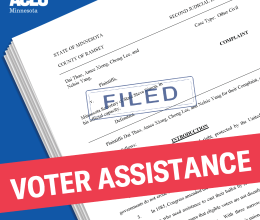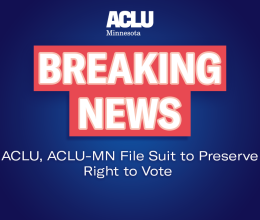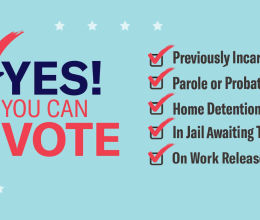
Update: VICTORY!
On April 21, 2020, the ACLU-MN reached a consent decree that expands voting rights for people with disabilities or language barriers. The Minnesota Secretary of State agreed the law prohibiting assistance was preempted by the Constitution and Voting Rights Act, and was unenforceable.
CASE BACKGROUND
Helping a voter who has difficulty seeing or translating a ballot should not be a crime.
Yet state law makes it a crime for a candidate running for office to help someone cast a ballot, even if that voter asks for help because they have a disability, cannot read or write, or face language barriers. State law also makes it a crime for someone to help more than three people vote, even when the voters face these same challenges.
The ACLU of Minnesota filed Dai Thao et al. v. Minnesota Secretary of State on Feb. 11, 2020, in Ramsey County District Court to change this law, which violates the state and U.S. Constitutions and the federal Voting Rights Act. The Voting Rights Act explicitly allows people who need assistance to choose who will help them to ensure voters are not disenfranchised because of disability or language barriers.
The ACLU-MN’s plaintiffs include Thao; his wife Amee Xiong; Nelsie Yang, the first Hmong-American woman on the Saint Paul City Council; and Chong Lee, a first-generation Hmong-American born in Thailand who at one point needed help voting. Xiong and Lee are both community organizers who want to help voters in need of assistance, but find that state law limits their ability to do so.

